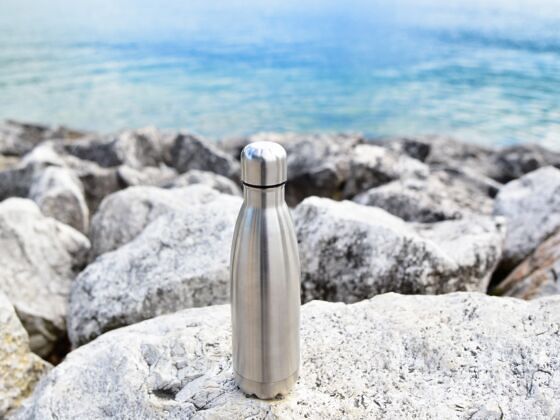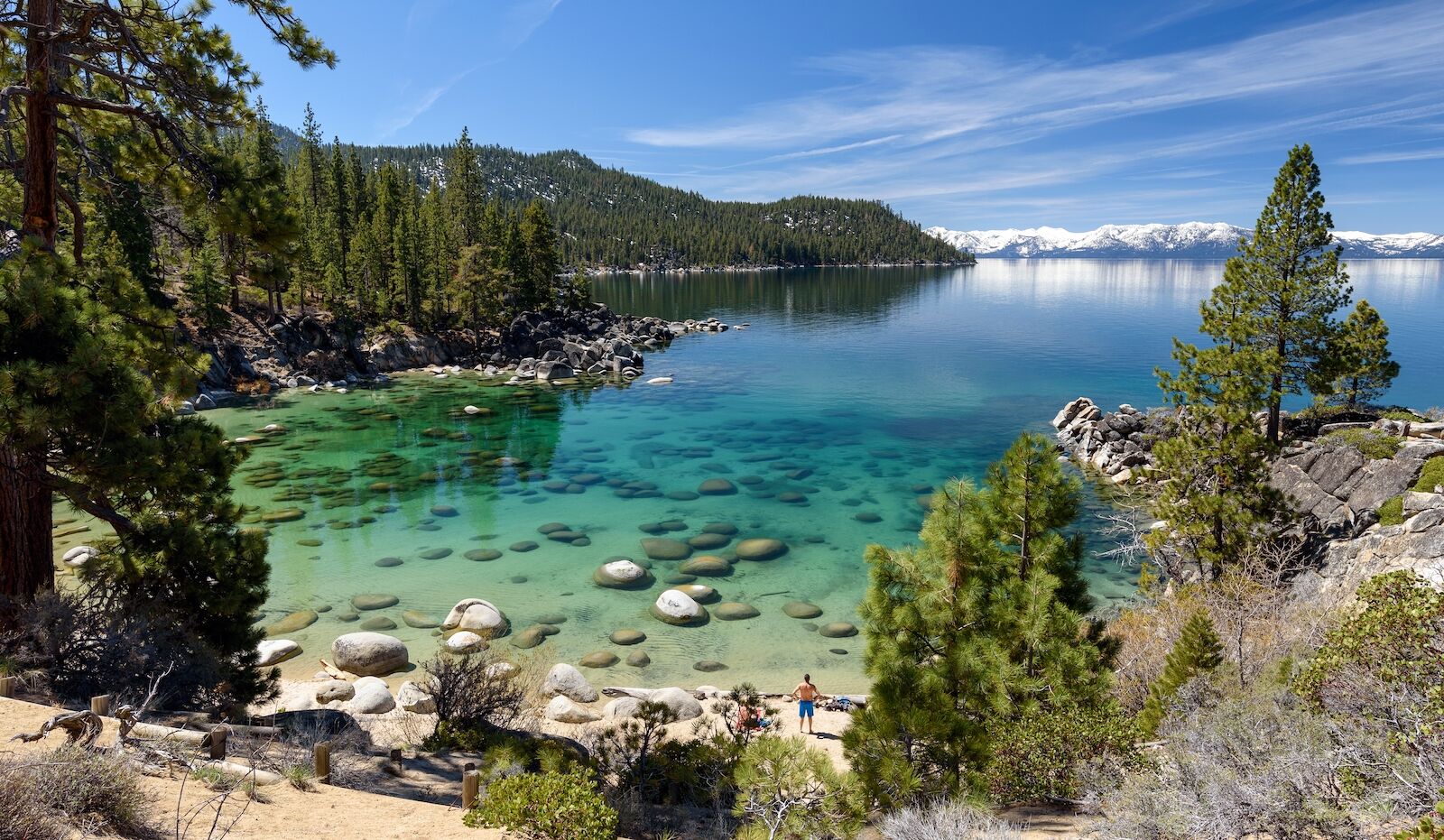People in the US are extremely lucky when it comes to water, with nearly every state and city in the country having tap water that’s perfectly safe to drink right out of the faucet. But despite that, Americans are some of the biggest consumer of bottled water, spending more than $80 billion on bottled water each year. That averages to each person buying the equivalent of 192 liters of water per person.


The 'Drink Tahoe Tap' Campaign Makes It Easy to Avoid Plastic in Lake Tahoe
Unfortunately, that translates into a devastating amount of plastic waste. Americans buy an average of 50 billion single-use water bottles per year, averaging to 13 bottles per month per person in the US. Producing plastic releases greenhouses gases that contribute to climate change, and the bottles primarily end up in landfills, where they take centuries to decompose. Worse is when these bottles end up directly in waterways, or breakdown into microplastics that move into waterways around the world. The impacts of microplastics are just starting to be understood, but it’s likely they lead to animal death and disorders, and leach chemicals into the ground and air.

Photo: Tommy Larey/Shutterstock
In Lake Tahoe, split between Nevada and California, area leaders have already banned single-use plastic bottles in towns around the lake. But they took it even one step further, and created a program to make visitors to the popular tourist towns aware that they don’t need bottled water. Tahoe-area water is “99.994 percent pure,” which makes it almost the same as much of the water bottled in the US, and was voted the “best tasting water in the country” by the National Rural Water Association.
The campaign, called “Drink Tahoe Tap,” aims to remind visitors that Lake Tahoe’s tap water is some of the best in the country. And visitors with their own water bottles have no excuse not to try it (and no excuse for getting dehydrated), since a collective program installed 63 public and free fill-up stations at area businesses and attractions around the lake. Thanks to a funding effort, area businesses could get grants of up to $500 to install their own airport-style water bottle fill-up stations.
“Drink Tahoe Tap is an environmental stewardship campaign that encourages people to make choices that will create less plastic waste,” says Noah Shapiro, Program & Outreach Coordinator for The Tahoe Fund. “[It’s been] identified as one of Take Care Tahoe’s core initiatives because it applies to everyone in Tahoe, all year long.”
Take Care Tahoe is a collection of initiatives supported by area partners ranging from the US Forest Service to area ski resorts and chambers of commerce. Initiatives as part of Take Care Tahoe include not just “Drink Tahoe Tap,” but also campaigns to encourage visitors to be bear aware, efforts to remind locals and visitors alike to keep rivers clean, and education to help keep invasive species out of Tahoe-area waterways. To some degrees, Tahoe is a victim of its own popularity, with many local residents struggling with the influx of tourists — an issue seen in mountain towns around the country — and the initiatives aim to lessen the impact of recreators around the lake.
Anyone can use any bottle at the refill stations, but Tahoe-area Raley’s grocery stores are selling “Drink Tahoe Tap” bottles at area stores for $20, with a small amount of the proceeds going back to the Tahoe Fund. But if you’re visiting South Lake Tahoe, you may be able to get a reusable water entirely for free. “In South Lake Tahoe, Visit Lake Tahoe has been distributing free water bottles with the Drink Tahoe Tap logo on them to spread awareness around the single use plastic bottle ban that went into effect in April 2024,” says Shapiro.